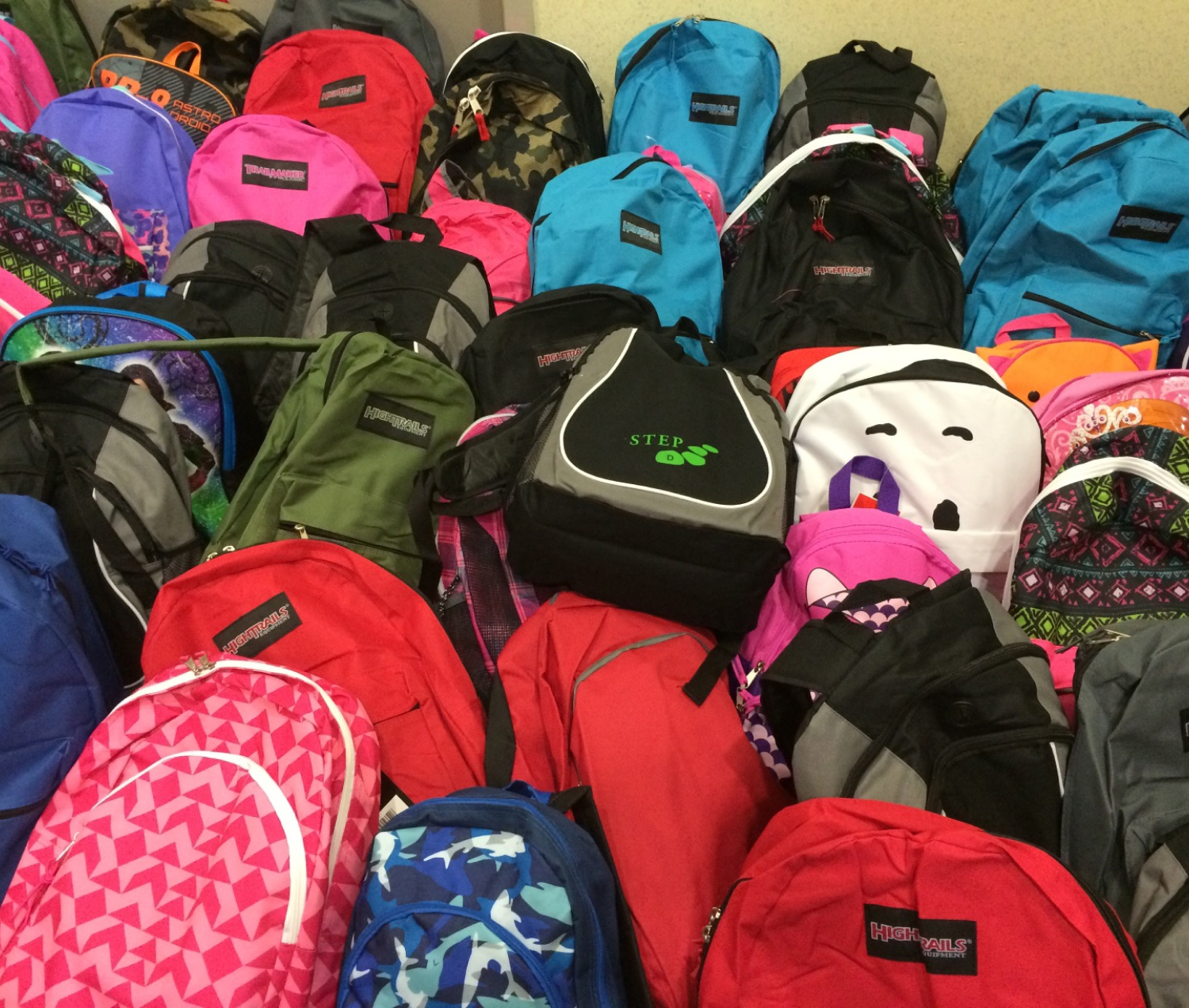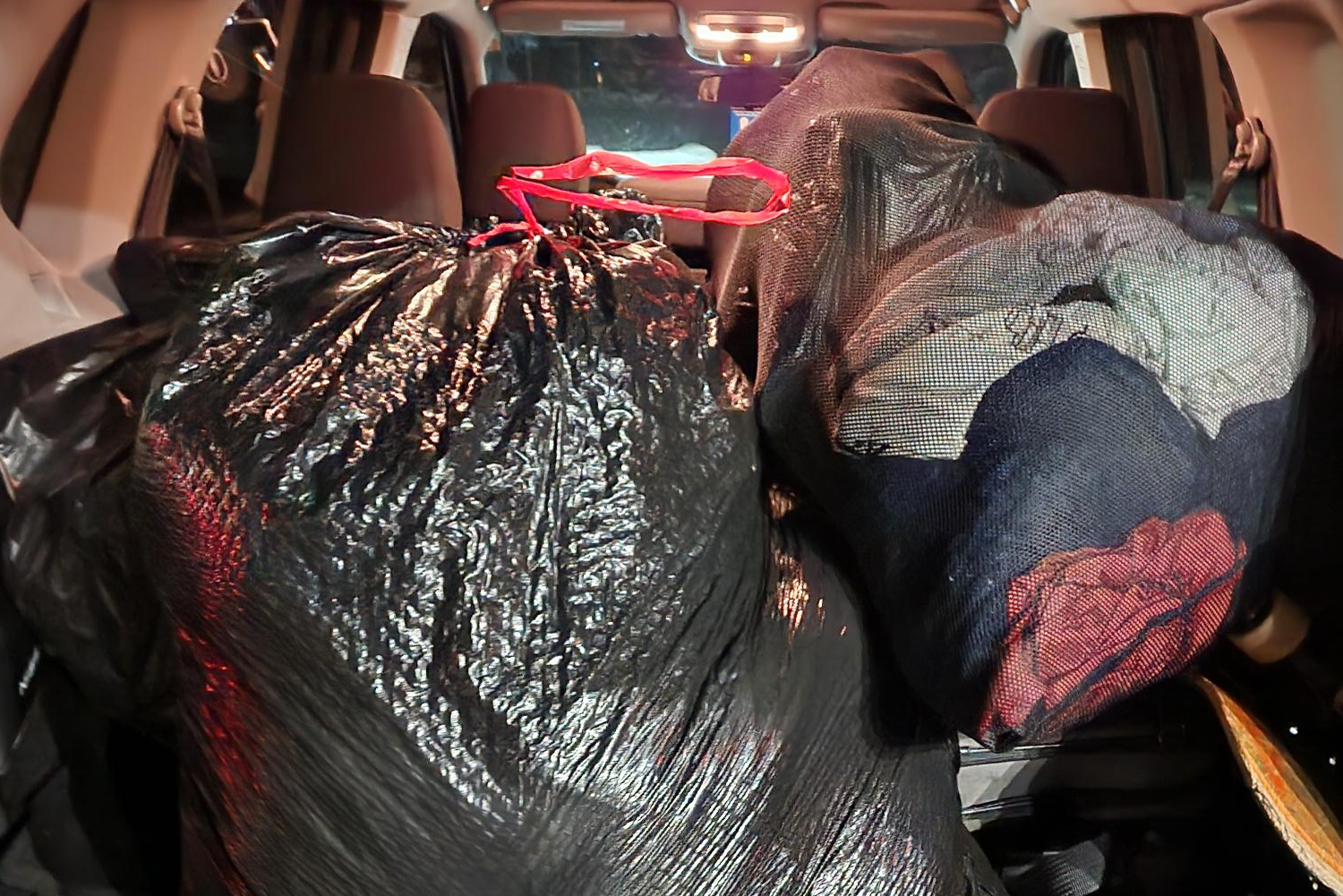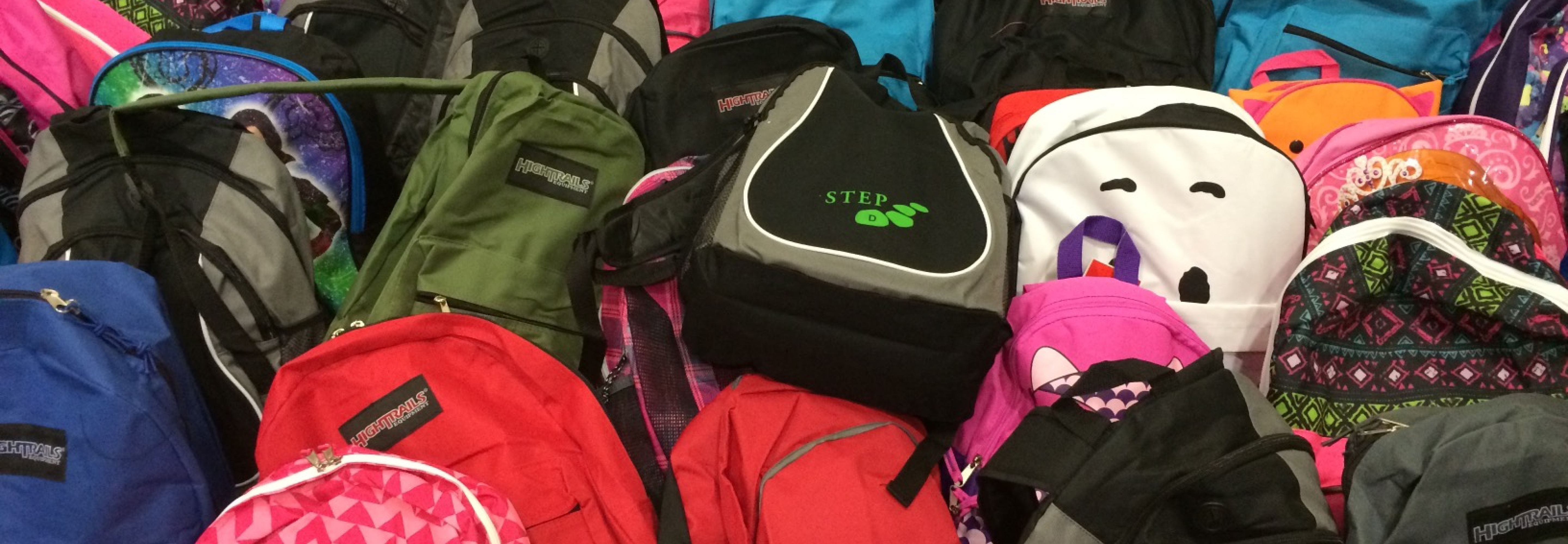
Foster youth in MD. use trash bags to move, advocates say. A bill would change that.

Javier’s clothes were stuffed into a black trash bag and thrown into the trunk of a car, according to a photo taken last month and recently shown to Maryland lawmakers. As he was being transferred from one foster home to another, this bag, secured by a red tie at the top, held all of his life’s belongings.
The practice, detailed by foster youth advocates to Maryland state lawmakers in testimony last week, is still happening despite insistence from state officials that luggage is already provided to youth. Front-line workers who report seeing it are leaning on the state General Assembly to enshrine in law a requirement that every foster child receive new luggage.
Unlike many of the complex problems that land children in the state’s systems of care, they told delegates at a House committee hearing, the dehumanizing issue would be simple to fix.
“This can improve the lives of the children that we serve,” Erica LeMon, director of advocacy for children’s rights at Maryland Legal Aid testified at the Maryland House Judiciary Committee on Thursday, using Javier as a pseudonym for the foster child to protect the boy’s identity. “We would like for Maryland to treat our foster children like we would treat our own children, with dignity and respect.”
The Maryland Department of Human Services opposes the bill, introduced in the House by Del. Joe Vogel (D-Montgomery), according to a spokesperson who said it would create administrative burdens on social workers.
Rafael J. Lopez, secretary of Maryland’s Department of Human Services, said in written testimony that children are already given luggage. Brian Schleter, a department spokesman, further clarified to The Washington Post that local departments across the state are able to use their existing luggage supplies for foster youth.
“No child should ever suffer the needless humiliation and trauma of being forced to move their belongings in a disposable bag, no matter the circumstances,” Schleter said. “DHS has longtime practices in place to ensure this does not happen in Maryland.”
Laws relating to giving luggage to foster youth were passed last year in Oregon and Texas. There is not a law to regulate this issue in the District, but Keena Blackmon, a spokeswoman for the D.C. Child and Family Services Agency said children receive duffels or backpacks through partnerships with local nonprofits and donations from individuals, churches and other organizations.
“We strongly believe in ensuring that children in foster care are not using trash bags as they move from one home to another,” Blackmon said in a statement. A spokesperson for the Virginia Department of Social Services did not immediately provide a comment on whether foster youth use trash bags or luggage.
There are about 3,800 children in foster care across Maryland each year, according to an estimate in the bill’s fiscal and policy note. If the bill is implemented, the note estimates the total cost of providing this new luggage would be a minimum of $76,560. The bill would also require the human services department to record when children use a disposable bag to transport belongings and why they were not given luggage.
Advocates for foster youth pushed back on the notion that foster youth are already being given luggage. The photo of Javier’s trash bag of belongings, which LeMon showed to the committee Thursday, was taken last month. Delora Sanchez Ifekauche, who was in the Maryland foster care system and mentors former foster youth, testified that she carried her belongings in a trash bag more than 25 years ago and has heard from mentees that they had that same experience.
Del. Aaron M. Kaufman (D-Montgomery) asked why officials in the human services department believe youth are already being given luggage while advocates on the ground say that is not happening.
“So where is the disconnect?” he asked.
The answer is not clear, Ifekauche said.
“I can tell you from my own personal experience and young people that I continue to mentor in foster care, that is not the case,” Ifekauche testified. “They are carrying their only worldly belongings in garbage bags.”
Vogel said the mandatory reporting aspect of this bill would clarify whether the practice of giving children luggage — not trash bags — is actually happening.
“This is a very, very common-sense first step to making sure that we affirm the dignity of every person, every child, in our foster care system,” he said in an interview.
Rob Scheer testified last week in support of the bill in hopes that foster children receive hope and dignity through their own luggage.
When Scheer’s five children arrived at his door through foster care, they showed up the same way Scheer did more than four decades ago — with a trash bag. In an interview, Scheer explained that his eldest son arrived at his Maryland home in 2019 and he thought “how the hell could this still be happening?”
Scheer co-founded Comfort Cases, a Rockville-based nonprofit that delivers care packages and luggage to foster children with the goal of eradicating trash bags from the system.
“A trash bag for kids like me in the system, it makes us feel disposable. It makes us feel that we don’t matter, that we’re invisible,” Scheer said. “We know at a young age why a trash bag was made and that was to put trash in it. And so when all of a sudden you’re putting children’s clothing in it including my own, it can do nothing but take away your self-worth.”

